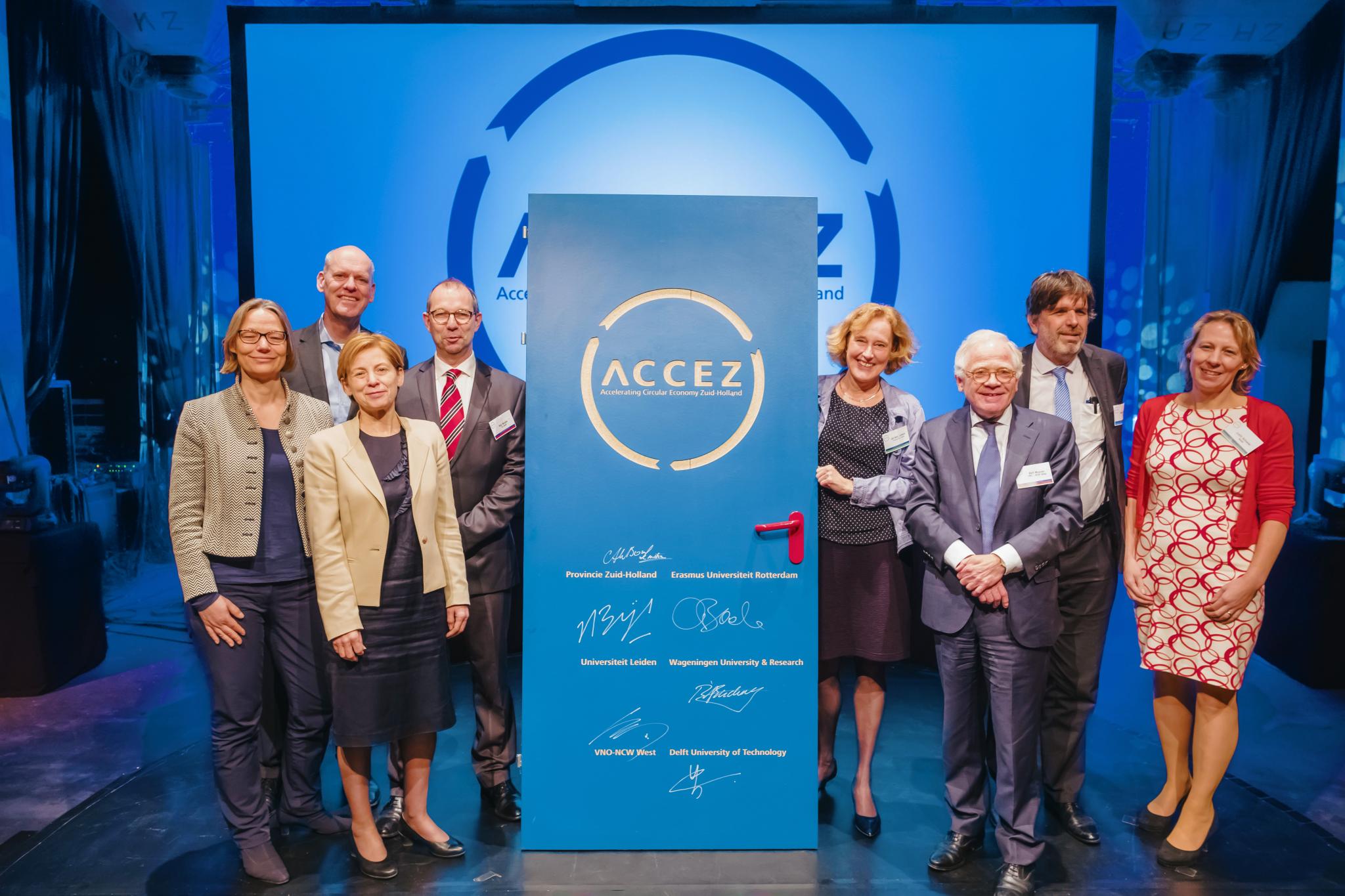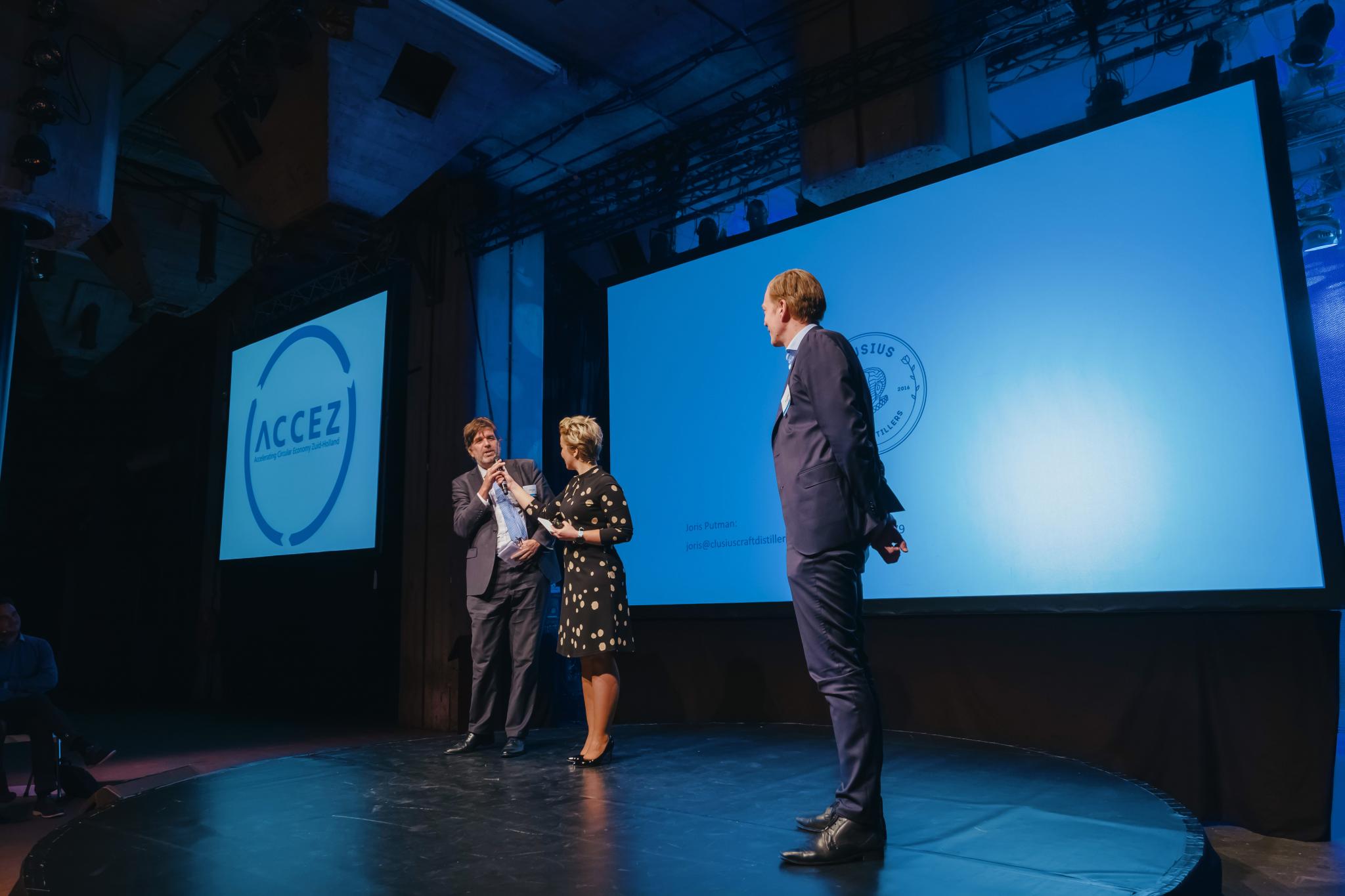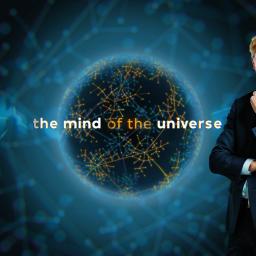The circular economy is in the ascendant. New business models are emerging, based on material recycling and renewable raw materials. This spring, the province of Zuid-Holland launched the ACCEZ knowledge and innovation programme to encourage and support the Zuid-Holland business community in the transition towards a circular economy. Over the next five years, the province will invest five million euros in ACCEZ. The Leiden-Delft-Erasmus Centre for Sustainability is one of the initiators and an important knowledge partner in this new innovation programme. The cooperation agreement was signed by all the partners on 5 April.

ACCEZ stands for 'Accelerating Circular Economy Zuid-Holland' and is a joint initiative of the province of Zuid-Holland and Leiden University, TU Delft, Erasmus University Rotterdam, Wageningen University & Research and employers' federation VNO-NCW West. The ACCEZ launch marked a milestone for the Leiden-Delft-Erasmus Centre for Sustainability. Prof. Arnold Tukker, the centre's scientific director and Professor of Industrial Ecology at Leiden, is one of the people who developed the plan with the province: “It really is a fantastic development. It will enable Zuid-Holland to integrate its universities into the innovation ecosystem. As a result, the universities will be better informed with regard to what is needed for the circularity transition and can fine-tune their knowledge development accordingly.”
The linear economy is based on unending growth and the use of fossil fuels. This will result in depletion of the Earth's resources. The circular economy aims to maximise the reusability of products and raw materials and minimise the destruction of value. This is not only a technological necessity, but also an economic opportunity. “But the step towards a new economic model will not be easy,” says Adri Bom-Lemstra, of the Zuid-Holland Provincial Executive: “It calls for groundbreaking entrepreneurship and scientific research. Perhaps equally importantly, it requires innovative policy. Making the transition is particularly important in our heavily urbanised province that includes the port of Rotterdam, greenports and international and innovative companies. At the same time, the province is uniquely placed to achieve this, thanks to these same businesses and industry, and the knowledge vested in our universities. We aim to bring all of this together through ACCEZ.”

Universities have been developing knowledge on the circular economy for a long time, for example at TU Delft's Faculty of Mechanical, Maritime and Materials Engineering (3mE). Dr Erik Offerman, also a board member at the Leiden-Delft-Erasmus Centre for Sustainability, has researched the possibility of making steel production circular. His research revealed that more is needed than just an ingenious technical solution; for example, economic, legal or political barriers may have to be removed. This multidisciplinary approach is exactly what Leiden-Delft-Erasmus can offer the province. You can read Dr Erik Offerman's full article here.
ACCEZ will focus on issues in which several parties, usually companies and local government authorities, have a common problem. It will work with the universities in the quest for an integrated solution, making use of knowledge from different academic and scientific disciplines. For the universities, the partnership will also provide new insights into the circular economy. ACCEZ will connect businesses with government, academics and scientists to work on specific areas or topics, referred to as circular transition challenges. Het Groene Hart (The Green Heart) and De Binckhorst are two examples of this:
Het Groene Hart
The Groene Hart circular transition challenge focuses on the highly promising application of waste materials to combat subsidence. This solution is being hampered by legal issues. Prof. Koos Biesmeijer, Professor of Natural Capital at Leiden University, is involved in this challenge and in this short video he explains the issues at play: "Great solutions have been suggested by all kinds of parties, but, at system level, we do not know what we should do and need solutions for a transition to a sustainable economy."
De Binckhorst
Another transition challenge focuses on what was Nieuw Binckhorst West, a major redevelopment on a former industrial site. Various players intend to transform part of the site into a circular residential and employment zone. TU Delft's Prof. Ellen van Bueren, also a board member at the Leiden-Delft-Erasmus Centre for Sustainability, talks about it in this short video: "Through ACCEZ, we aim to explore how we can develop this area sustainably and in the circular way, involving all stakeholders".
Full information about ACCEZ can be found at www.accez.nl


